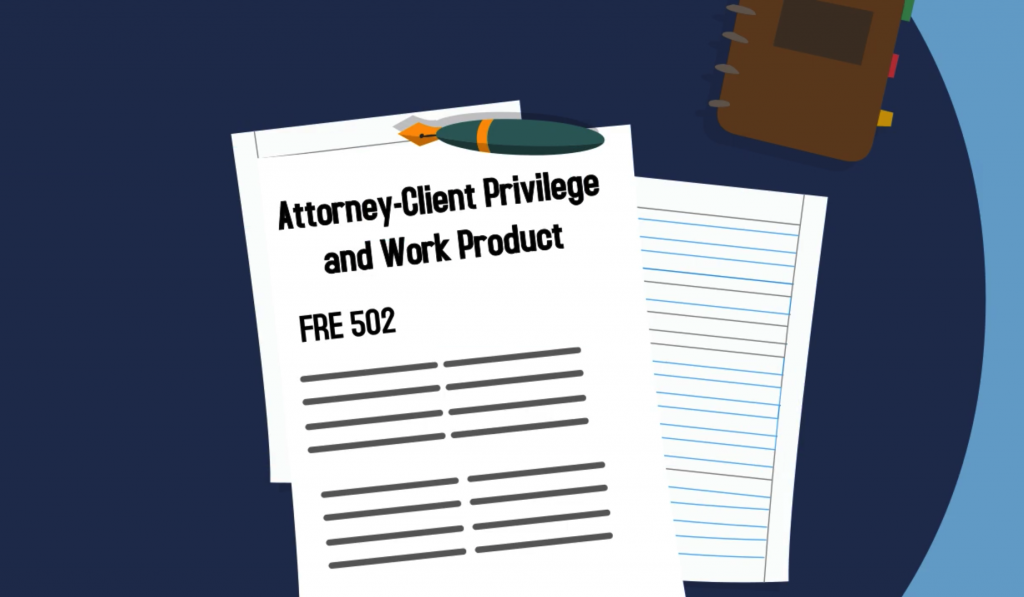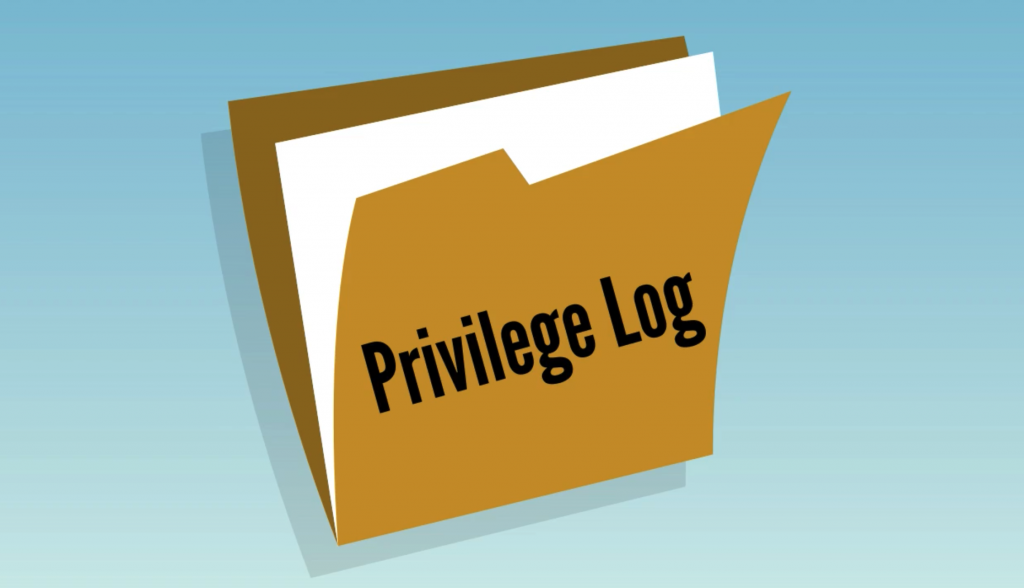You are past the discovery planning conference stage and opposing counsel has just sent you a request to produce documents. There are certain documents that may be discoverable, but you feel that some of them are privileged. Under the Federal Rules of Civil Procedure (“FRCP”), attorneys have a duty to disclose general discovery and, under the Federal Rules of Evidence (“FRE”), documents may be deemed privileged and therefore protected.

FRE 502, Attorney-Client Privilege and Work Product, protects attorney-client privilege and work product from disclosure. Under this rule, if there is an inadvertent disclosure of privileged documents, the side that sent the documents is responsible for taking prompt reasonable steps to rectify the error. Additionally, disclosing parties will want to engage in a clawback agreement, by way of stipulation or by moving the court for an order. Regardless of the protections under FRE 502, you should always take the extra step to make sure this disclosure does not happen in the first place.
In order to make sure that privileged documents are not being inadvertently sent to opposing counsel in a response to a request to produce, it is important that every document is looked over carefully. Today, advanced searching, analytics and review tools are available to reduce the likelihood of privilege-disclosure. When there are documents that are to be considered privileged, you should create a privilege log.
FRCP 26(b)(5) applies when there are privileged documents or you want to protect trial-preparation materials. This rule requires that a privilege log “(i) expressly make the claim; and (ii) describe the nature of the documents, communications, or tangible things not produced or disclosed – and do so in a manner that, without revealing information itself privileged or protected, will enable other parties to assess the claim.”

A privilege log is more than a list of document-names that the attorney is holding out to be privileged and therefore non-discoverable. The purpose of a privilege log is to list each document that is privileged and to describe the document generically and provide the privilege being asserted. Some of the basic information to be recorded on the privilege log is as follows: date, the person who made the communication, the recipients of the communication, and the general nature of the communication. As the rules suggest, be careful not to provide too much information that you would be revealing privileged information.
It is important to make sure that you have the right team, experienced in data productions and exception/privilege log assembly working with you on your discovery requests. One reason for this is because the privilege log can become helpful later on if a dispute arises as to whether or not the documents listed are actually privileged and protected from disclosure.
With creating this log, you have created an extra protection against a motion to compel. When there is a dispute over a document that is considered privileged, the court may conduct an in camera inspection of the disputed material prior to opposing counsel receiving these documents. Without the privilege log, opposing counsel can file a motion to compel and the court may not have to look over the documents before granting the motion.
For more information about discovery requests, data production, privilege logs, or other litigation support services; contact LITeGATION for a free initial-consultation.







